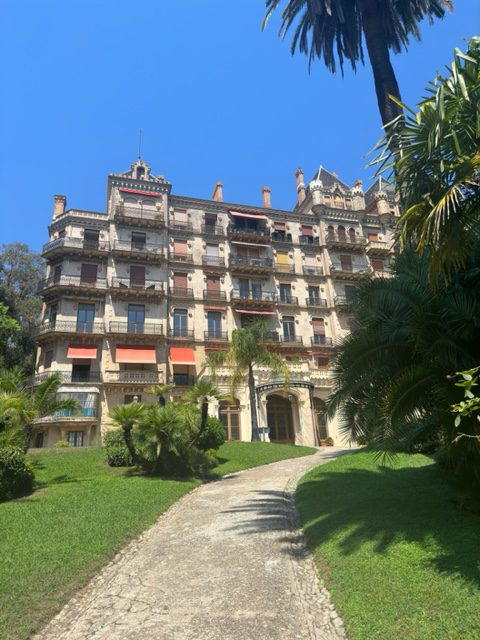In France, utility costs form a significant part of housing expenses and can vary depending on several factors: region, type of property, energy efficiency, and consumption habits. On average, utilities account for 15% to 35% of the total rent, making them an essential component to consider when renting a property.
Main Components of Utility Costs
1. Electricity
Electricity is one of the largest components of utility expenses. It is used for lighting, household appliances, heating, and air conditioning. The average cost of electricity in France is approximately €0.23 per kWh.
For apartments of around 70 m², monthly electricity bills typically range from €50 to €120, increasing during winter when electric heating is in use.
2. Gas
Gas is widely used in France for heating, cooking, and hot water. Gas expenses are seasonal, with significantly higher costs in winter due to heating requirements, while summer costs are minimal. On average:
• Winter gas costs: €40–€100 per month.
• Summer gas costs: €20–€30 per month.
Gas prices are a substantial part of utility expenses, particularly in colder regions.
3. Water and Sewage Services
Water and sewage costs depend on consumption and local tariffs. In France, the average water cost is €2–€4 per cubic meter. A typical monthly bill for a household of two or three people ranges from €20 to €50.
Consumption habits heavily influence water costs. For example, using modern appliances like dishwashers and washing machines can help reduce usage.
4. Heating and Air Conditioning
Heating is a key expense during cold months and can be centralized or individual (electric or gas). Air conditioning is more relevant during summer, especially in southern regions of France. Average costs:
• Heating in winter: €50–€200 per month.
• Air conditioning in summer: up to €50–€80 in hot regions.
Energy-efficient properties and programmable thermostats can significantly reduce these costs.
5. Waste Collection
In most cases, waste collection and disposal are included in the housing tax (taxe d’habitation), but in some municipalities, this may be a separate charge. Average waste management fees range from €10 to €30 per month.
6. Internet and Television
Internet and television services are a separate utility expense. Depending on the provider and package, the average cost ranges from €20 to €40 per month. Many modern packages include high-speed internet, phone services, and cable television.
Regional Differences in Utility Costs
Utility expenses vary significantly across French regions due to differences in climate, cost of living, and local tariffs.
Paris and Île-de-France
Paris and its surrounding areas have the highest utility costs in the country. Housing here is often less energy-efficient, and the population density increases overall utility expenses. For a 50–70 m² apartment, monthly utility bills range from €200 to €400.
Southern France
Regions with milder climates, such as Provence and the French Riviera, have lower winter heating costs. However, summer air conditioning increases electricity consumption. Monthly utility costs for mid-sized apartments range from €150 to €300.
Northern France
Northern regions, such as Normandy and Brittany, experience colder winters, requiring more heating, which increases utility expenses to €250–€400 per month.
Example of Utility Costs
For an apartment with a monthly rent of €800, utility expenses might include:
• Electricity: €80–€120.
• Gas: €40–€100.
• Water and sewage: €30–€50.
• Waste collection: €15–€25.
• Internet: €25–€35.
Total: €190–€330, accounting for approximately 25%–35% of the total rent.
How to Optimize Utility Costs
Several strategies can help tenants reduce utility expenses in France:
1. Use Energy-Efficient Appliances
Purchasing energy-efficient appliances rated A+ or higher, as well as using LED bulbs, can reduce electricity costs by 15–20%.
2. Install Programmable Thermostats
These devices allow precise control of heating schedules and temperatures, which is especially useful in winter. Savings on heating can reach 10–20%.
3. Conserve Water
Installing faucet aerators and water-saving showerheads helps reduce water consumption, potentially lowering bills by 10–15%.
4. Choose Competitive Tariffs
Many French utility providers offer tariffs for nighttime consumption, which can be particularly cost-effective for households that use electricity at night.
5. Opt for Centralized Heating
Apartments with centralized heating often include this cost in the rent, which can lower individual heating expenses, especially in colder regions.
Legal Framework
In France, landlords are required to provide tenants with detailed information about utility charges. This includes expenses for water, electricity, heating, and maintenance of common areas (for multi-unit buildings). Tenants also have the right to access copies of bills.
Additionally, the French government offers the “energy check” (chèque énergie) program to support low-income households with utility payments. The amount of the subsidy depends on household income and size.
Conclusion
Utility costs in France constitute a significant portion of the total rent, ranging from 15% to 35%. These expenses depend on the region, type of property, and consumption habits. Optimizing utility costs through energy-efficient appliances, smart consumption practices, and competitive tariffs can help reduce monthly expenses.
When planning a budget, tenants should factor in utility bills and carefully review rental agreements for details about included and additional charges. Doing so will help avoid unexpected costs and better manage overall housing expenses.
The Share of Utility Costs in Total Rent in France
757
previous post

